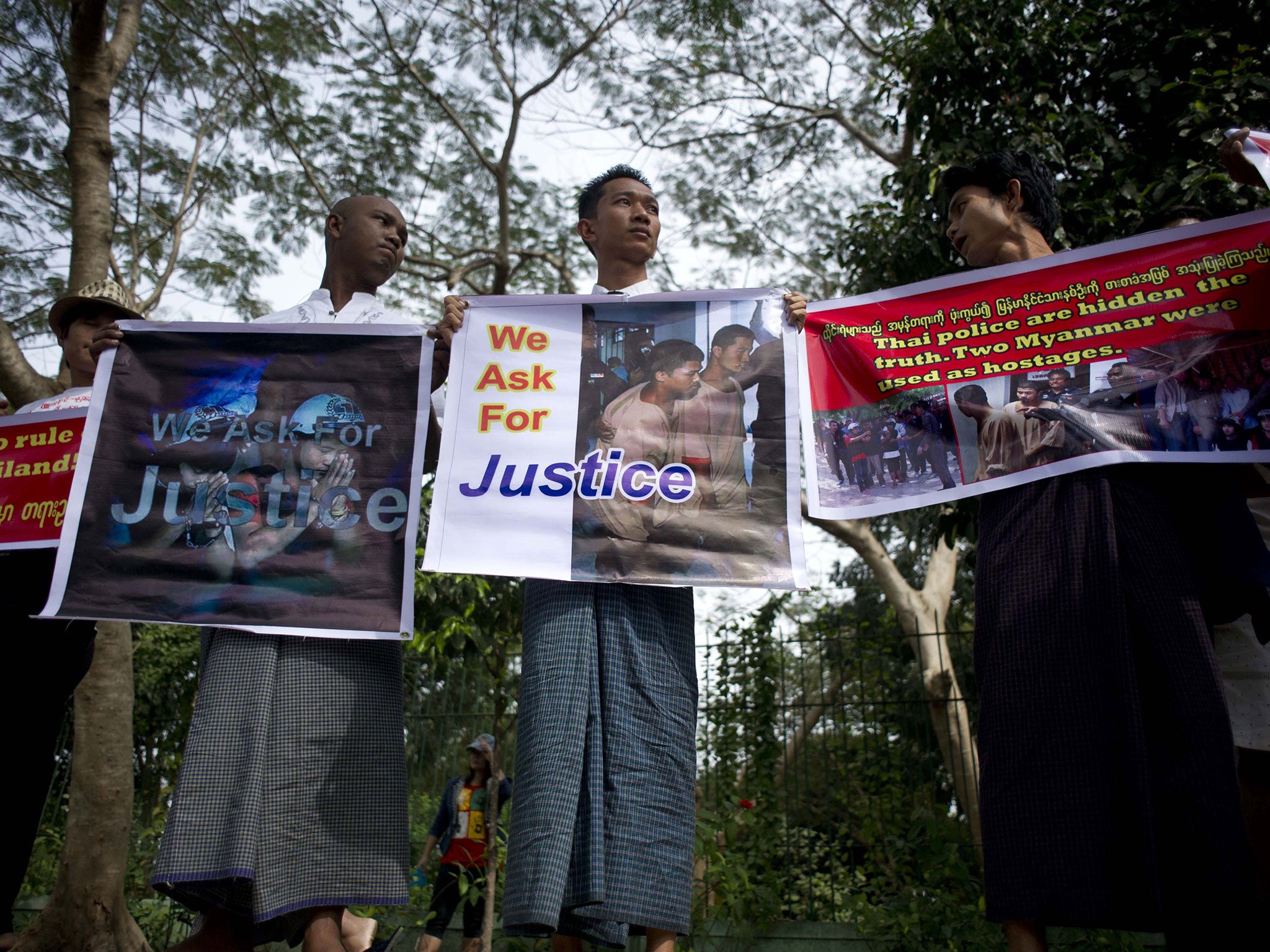British intelligence used to put two migrant workers on Thailand’s death row
National Crime Agency criticised for involvement in case of murdered backpackers

Thailand used evidence supplied by the National Crime Agency (NCA) to put two migrant workers on death row despite senior British officials warning that such a move could damage the reputation of UK policing, it has been revealed.
In December, two Burmese labourers were convicted of the 2014 murder of backpackers David Miller and Hannah Witheridge despite the concerns of human rights groups. During their trial, the defendants claimed that they had been tortured into confessing their role in the killing.
On 15 February, an investigation by BuzzFeed News disclosed that the NCA handed over details about Mr Miller’s iPhone to Thai police. The information – the phone’s serial number – was used in the criminal trial to link Zaw Lin and Wai Phyo to the killing, as it proved that a smashed iPhone found on a property linked to the two Burmese migrants had belonged to the victim.
Government guidance suggests that law enforcement should not supply “assistance” to foreign nations that have the death penalty without written permission from ministers.
The NCA confirmed that it had shared intelligence “verbally” with the Royal Thai Police but declined to say whether it had secured agreement from ministers.

During the investigation into the murder of the British backpackers, the Metropolitan Police sent a team to the island of Koh Tao, following a discussion between the countries’ two Prime Ministers.
But the Met officers were only authorised “to undertake, in essence, a listening or observer role”, because Thailand has the death penalty. Furthermore, no reassurances were received by Britain that the death penalty would not be sought in this case, according to court documents that emerged during the defendants’ unsuccessful bid to obtain copies of the report compiled by the Met.
The officers were in effect sent to act as a family liaison team for the families of Miss Witheridge, 23, from Norfolk, and Mr Miller, 24, from Jersey.
According to the court papers, the former assistant commissioner of Scotland Yard, Cressida Dick, warned that any work by the officers should not “become part of the Thai evidential chain”, otherwise this would place the force and the UK “at extreme legal and reputational risk”.
After the murders on a beach on Koh Tao, a small island popular with travellers and divers, Thailand’s Prime Minister appeared to suggest that beautiful women dressed in bikinis were effectively to blame if they were the victims of violence.
Gen Prayuth Chan-ocha later apologised for the statement – tourism is a key industry for the country – but went on to point the finger of blame at the country’s migrant labour force.
The two Burmese migrant workers were later arrested, convicted and sentenced to death. They had recanted their initial confessions and claimed that they were framed by the Thai police and made to confess after severe beatings. They are currently appealing.
An NCA spokesman said: “With regard to international law enforcement co-operation in general, intelligence may be shared with law enforcement partners, either verbally or in written form.
“In fast-moving investigations, potentially involving threats to life, it is not uncommon for intelligence to be shared verbally, with a record of the information shared being retained by the NCA.
“The NCA monitors human rights concerns closely, having regard to the Foreign & Commonwealth Office’s Overseas Security and Justice Assistance Guidance when sharing intelligence. We expect investigations and trials to be conducted in a fair and transparent way, in line with international standards.”